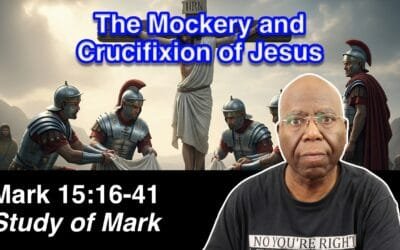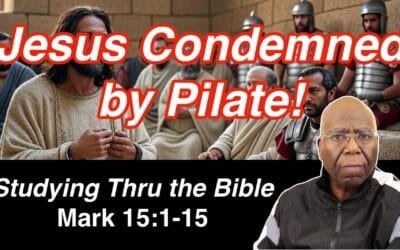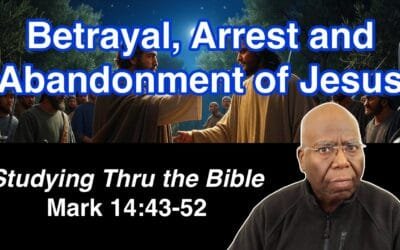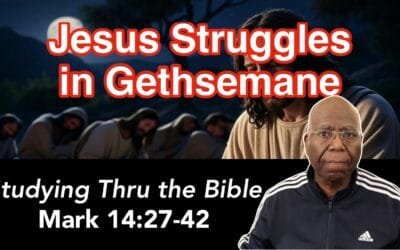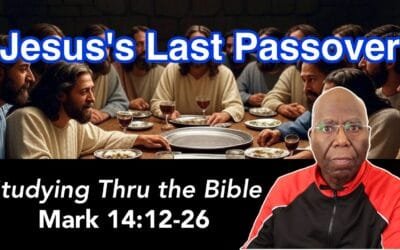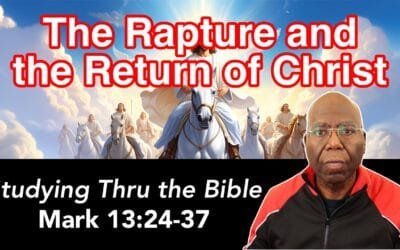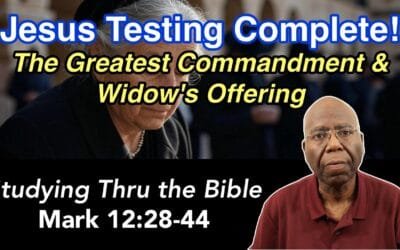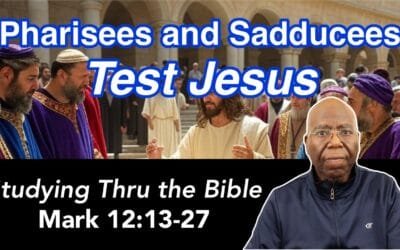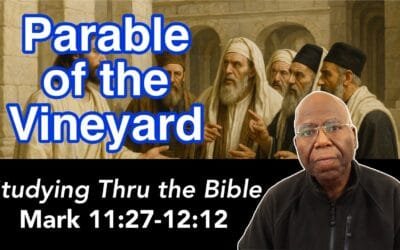Sign up for your free membership to
get access to member-only content.
The Mockery and Crucifixion of Jesus (Mark 15:16-41)
Mark 15:16–41 recounts Jesus’ mockery, crucifixion, and death. Roman soldiers humiliate Him, He is crucified at Golgotha, darkness covers the land, and Jesus dies with a loud cry. The temple veil tears, and a centurion declares, “Truly this man was the Son of God.” Women followers witness from a distance.
Jesus Condemned by Pilate! (Mark 15:1-15)
In Mark 15:1–15, Jesus is brought before Pilate by the chief priests. Though Pilate finds no guilt in Him, the crowd—stirred by the leaders—demands the release of Barabbas instead. Yielding to political pressure and to satisfy the crowd, Pilate condemns Jesus to be crucified.
Jesus is Condemned By the Religious Leaders; Peter’s Denial (Mark 14:53-72)
In Mark 14:53-72, Jesus is brought before the high priest and falsely accused, while Peter follows at a distance and denies Him three times, fulfilling Jesus’ prophecy as the rooster crows.
Jesus’s Betrayal, Arrest and Abandonment (Mark 14:43-52)
In Mark 14:43–52, Judas betrays Jesus with a kiss, leading a crowd armed with swords and clubs to arrest Him. Jesus confronts them about their secrecy. The disciples flee, and a young man escapes naked, highlighting the complete abandonment of Jesus.
Jesus’s Struggle in Gethsemane (Mark 14:27-42)
In Mark 14:12–26, Jesus predicts the disciples’ desertion and Peter’s denial, then prays in Gethsemane in deep agony while the disciples repeatedly fall asleep; He submits to the Father’s will as His betrayal approaches.
Jesus’s Last Passover (Mark 14:12-26)
In Mark 14:12–26, Jesus instructs His disciples to prepare the Passover meal, foretells His betrayal by one of them, and institutes the Lord’s Supper, symbolizing the New Covenant through His body and blood, before departing to the Mount of Olives.
The Betrayal of Jesus: It’s All about MONEY! (Mark 14:1-11)
Mark 14:1–11 recounts the religious leaders’ plot to kill Jesus during the Passover, a woman’s bold act of anointing Jesus with expensive perfume as a prophetic preparation for His burial, and Judas Iscariot’s decision to betray Jesus to the chief priests in exchange for money.
The Rapture and the Return of Jesus Christ (Mark 13:24-37)
Mark 13:24–37 presents Jesus’ closing words in the Olivet Discourse, describing cosmic upheaval following the tribulation, the visible return of the Son of Man, the gathering of the elect, and a call to discern the signs like the fig tree. He warns that no one knows the exact day or hour, emphasizing constant alertness and readiness for His return.
When is the End? Jesus teaches on the end of man’s kingdom. (Mark 13:1-23)
In Mark 13:1-23, Jesus foretells the temple’s destruction, warns of false messiahs, global unrest, persecution, and betrayal. Believers are to endure as the gospel is preached. He commands urgent flight when the abomination of desolation appears, for severe tribulation is coming.
Jesus Testing Complete: The Greatest Commandment and the Widows Offering (Mark 12:28-44)
In Mark 12:28-44, Jesus affirms the greatest commandments—love for God and neighbor—challenges the scribes’ understanding of the Messiah, condemns their hypocrisy, and praises a widow’s sacrificial offering as true devotion.
Pharisees and Sadducees Test Jesus (Mark 12:13-27)
In Mark 12:13-27, the religious leaders attempt to trap Jesus with questions about paying taxes to Caesar and the resurrection. Jesus responds with wisdom, silencing their challenges and affirming both God’s authority and the reality of the resurrection.
Parable of the Vineyard (Mark 11:27-12:12)
In Mark 11:27-12:12, Jesus confronts the religious leaders who question His authority, then tells a parable exposing their rejection of God’s messengers and His Son, foretelling judgment on them.

